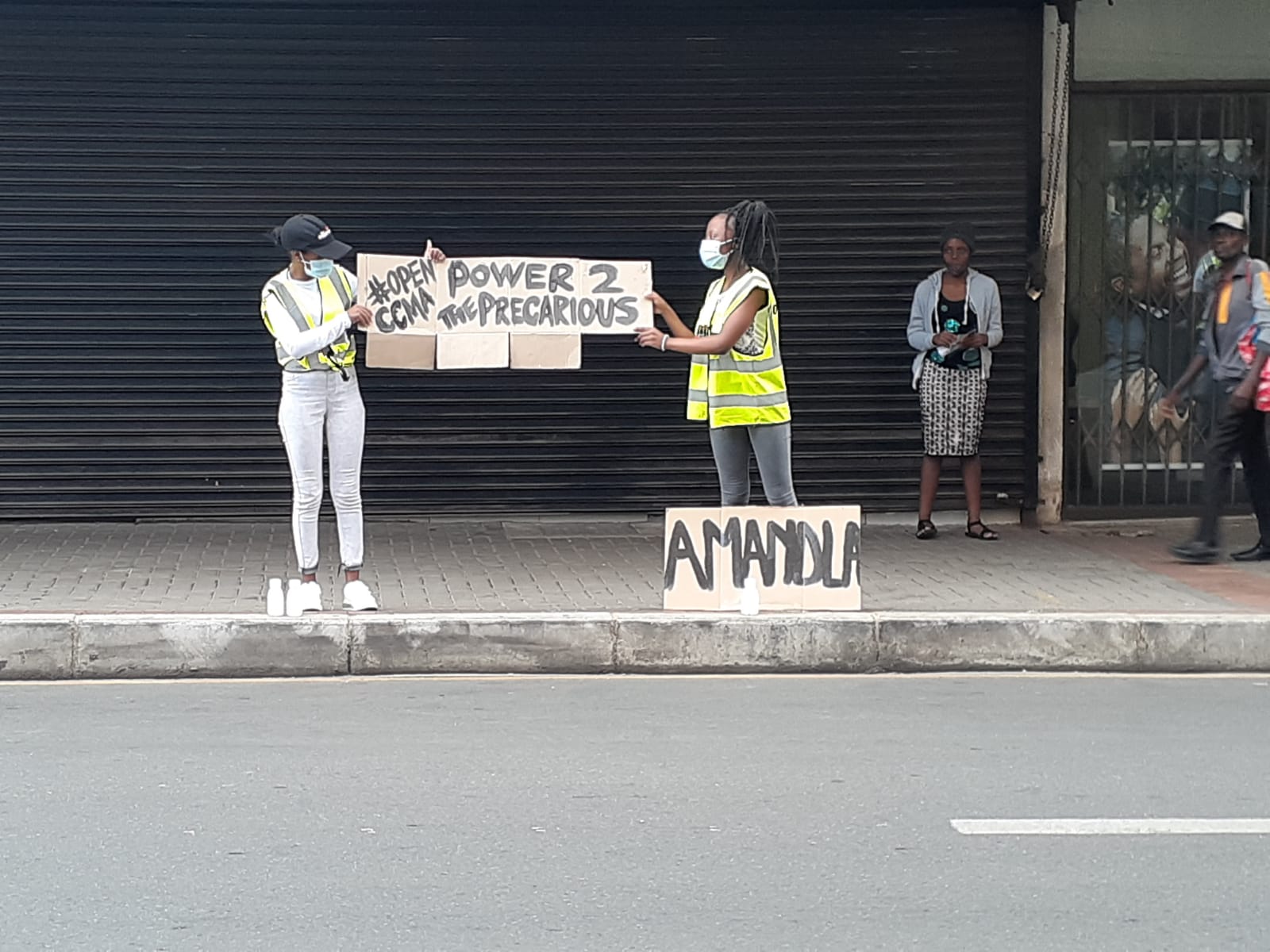Working class communities across South Africa continue to face the worst of the pandemic. On 31 January 2021, a number of social movements, trade unions, and Non-Governmental Organisations (NGOs) met online using Zoom to discuss the problems the working class is currently experiencing. Members from the different organisations reported issues their constituencies face, ranging from poor housing, starvation, and especially workplace problems which include new trends and tactics employers seem to be using against workers.
Comrade John Appolis of the General Industries Workers Union of South Africa (GIWUSA) told the meeting that unions are worried that employers are now “linking wage cuts with retrenchments.” He said that workers are being forced to take pay cuts as employers are coercing them into accepting changes to their conditions of employment. Those who refuse to accept the changes may be dismissed. According to Appolis, the changes included wage cuts, and in some cases, wage freezes. Another concern for workers is that some employers have applied for exemptions from wage increases. This comes at a time when inflation is soaring.
The Casual Workers Advice Office (CWAO) reported that there has been a rise in cases of unfair dismissals at the Commission for Conciliation, Mediation and Arbitration (CCMA). In addition, the state has introduced budget cuts to the CCMA, which is already failing to protect workers from their bosses.
According to a Simunye Workers Forum representative, Thamsanqa, workers are facing hazardous conditions in the workplace. “We are facing two or three positive [COVID] cases in a day.” Many employers are not adhering to health and safety regulations: although COVID cases are discovered, workplaces no longer closed for effective cleaning. Referring to a case at Dischem, Thamsanqa said that the employer refused to shut down the workplace because they need to meet “operational requirements.” Thamsanqa stated that Dischem fumigates premises only once workers have knocked-off for the day, and then operate their business as usual on the next working day.
Comrade Nosipho Mdletshe, of Khanya College, spoke about problems faced by educators in schools. She reported that teachers too are being ravaged by the coronavirus.
Comrade Dale McKinley reported that those sections of workers hit hardest by the pandemic are casual workers, farmworkers, and domestic workers, and are mostly women. Many households are headed by women, and in a significant amount of homes, they are the sole parent and breadwinner.
Comrade Francinah Nkosi from Limpopo said that hunger is now rife among the working class, with many having to get meals from soup-kitchens.
This article was submitted on 7 February 2021. You may republish this article, so long as you credit the authors and Karibu! Online (www.Karibu.org.za), and do not change the text. Please include a link back to the original article.


 Download PDF
Download PDF
